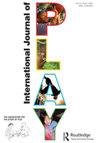假装游戏可以预测自闭症谱系障碍儿童的语言发展
IF 1.2
Q3 EDUCATION & EDUCATIONAL RESEARCH
引用次数: 0
摘要
本研究采用纵向照顾者调查的方法,探讨ASD儿童假装游戏与发育之间的关系。照顾者对7069名幼儿的发展进行了为期三年的季度性评估,评估内容包括:组合接受性语言、表达性语言、社交能力、感觉意识和健康。假装游戏与优越的发展轨迹相关:组合接受语言提高1.9倍(p < 0.0001),表达语言提高1.4倍(p < 0.0001),感觉意识提高1.3倍(p = 0.0009)。假装游戏并不能解释儿童社交能力和健康状况的显著差异。即使在控制表达性语言的情况下,假装游戏与组合接受性语言的强烈联系仍然是显著的。同样,即使在控制组合接受语言的情况下,假装游戏与表达语言的强烈联系仍然很明显。假装游戏与组合接受性语言的关联比癫痫发作、睡眠问题或长时间看电视的关联更强。这些发现支持了早期的研究,即假装游戏可能是语言习得的重要垫脚石,并强调了假装游戏治疗干预的潜力。本文章由计算机程序翻译,如有差异,请以英文原文为准。
Pretend play predicts language development in young children with Autism Spectrum Disorder
ABSTRACT This quantitative study uses longitudinal caregiver surveys to explore the relationship between pretend play and development in children with ASD. Caregivers assessed the development of 7069 young children quarterly for three years on five subscales: combinatorial receptive language, expressive language, sociability, sensory awareness, and health. Pretend play was associated with superior developmental trajectories: 1.9-fold greater improvement of combinatorial receptive language (p < 0.0001), 1.4-fold greater improvement of expressive language (p < 0.0001), and 1.3-fold greater improvement of sensory awareness (p = 0.0009). Pretend play did not account for a significant amount of the variability in children’s sociability and health. The strong association of pretend play with combinatorial receptive language remained significant even when controlling for expressive language. Similarly, the strong association of pretend play with expressive language remained significant even when controlling for combinatorial receptive language. The association of pretend play with combinatorial receptive language was stronger than the association of seizures, sleep problems, or high-TV exposure. These findings support earlier studies suggesting that pretend play may be an important stepping stone for language acquisition and highlight a potential for pretend play therapeutic interventions.
求助全文
通过发布文献求助,成功后即可免费获取论文全文。
去求助
来源期刊

International Journal of Play
Social Sciences-Cultural Studies
CiteScore
1.90
自引率
20.00%
发文量
60
期刊介绍:
The International Journal of Play is an inter-disciplinary publication focusing on all facets of play. It aims to provide an international forum for mono- and multi-disciplinary papers and scholarly debate on all aspects of play theory, policy and practice from across the globe and across the lifespan, and in all kinds of cultural settings, institutions and communities. The journal will be of interest to anthropologists, educationalists, folklorists, historians, linguists, philosophers, playworkers, psychologists, sociologists, therapists and zoologists.
 求助内容:
求助内容: 应助结果提醒方式:
应助结果提醒方式:


